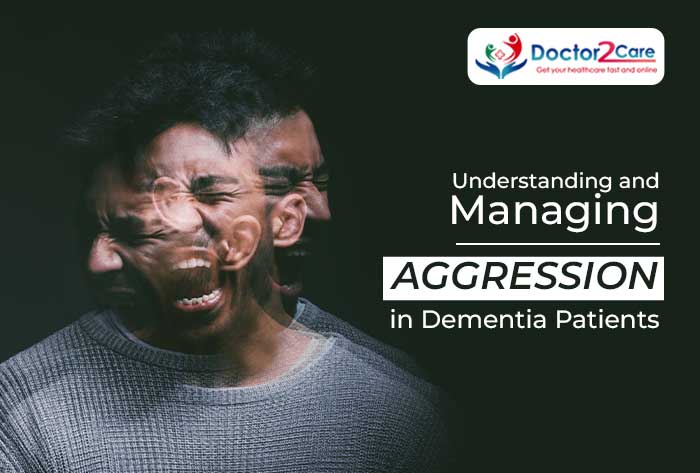Understanding and Managing Aggression in Dementia Patients

Dementia, a progressive neurological condition, impacts numerous individuals globally. One of the most challenging aspects of dementia is the occurrence of aggression in patients.
Aggressive behaviours can cause distress to both the patients and their caregivers, making it crucial to understand the underlying causes and explore effective management strategies. Checking with a doctor via a portal that provides online doctor consultation in India is crucial.
In this blog, we will delve into the topic of aggression in dementia patients, aiming to provide insights and practical guidance.
Understanding Aggression in Dementia
Aggression in dementia patients is not uncommon, as the condition affects various regions of the brain responsible for regulating emotions and behaviours.
It is important to recognize that aggression in dementia is not a deliberate act but rather a symptom of the underlying disease.
Several factors contribute to the development of aggression, including:
- Frustration and Communication Difficulties: Dementia impairs cognitive abilities, making it challenging for patients to express their needs and emotions. This frustration can lead to aggressive outbursts as a means of communication.
- Physical Discomfort: Dementia patients may experience pain, discomfort, or other physical issues that they cannot express verbally. Aggression can be their way of expressing distress.
- Environmental Triggers: Certain environmental factors like loud noises, crowded spaces, or unfamiliar surroundings can trigger anxiety and agitation in dementia patients, leading to aggression.
- Changes in Brain Chemistry: The degeneration of brain cells in dementia can disrupt neurotransmitter levels, affecting mood and behaviour regulation.

Managing Aggression in Dementia
- Patience and Empathy: When faced with aggression, it is crucial for caregivers to remain calm and patient. Understanding the underlying causes of aggression and empathising with the patient's frustration can help defuse tense situations.
- Effective Communication: Simplify your language, use non-verbal cues, and maintain a gentle tone while communicating with dementia patients. Providing reassurance and validating their emotions can help minimise feelings of frustration.
- Creating a Calm Environment: Minimise potential triggers by creating a peaceful and familiar environment. Reduce noise levels, ensure adequate lighting, and maintain a consistent daily routine. Familiar objects and photographs can provide a sense of security.
- Divert Attention and Engage in Meaningful Activities: Redirecting the patient's attention to engaging activities like music, art, or gentle exercises can help distract from feelings of aggression and promote relaxation.
- Medication and Therapy: In some cases, medication may be prescribed to manage aggression in dementia patients. Consult a healthcare professional to discuss the appropriateness of such interventions. Additionally, therapies like cognitive stimulation therapy and behaviour management programs can be beneficial.
- Self-Care for Caregivers: Taking care of dementia patients can be physically and emotionally draining. It is essential for caregivers to prioritise self-care, seek support from support groups or professionals, and take regular breaks to prevent burnout.
Conclusion
Aggression in dementia patients can be distressing, but by understanding its underlying causes and implementing appropriate management strategies, caregivers can create a safer and more comfortable environment for both the patients and themselves.